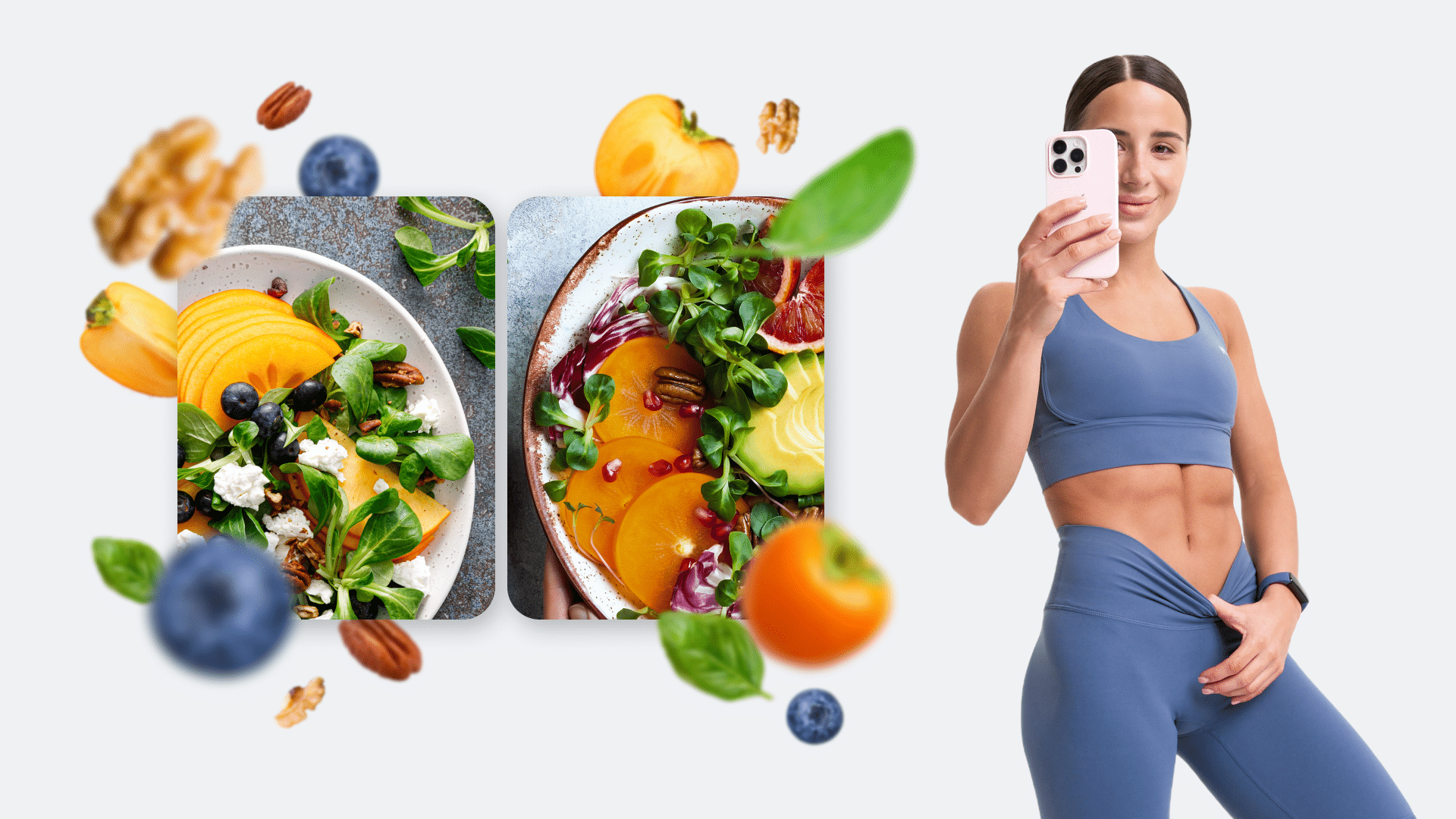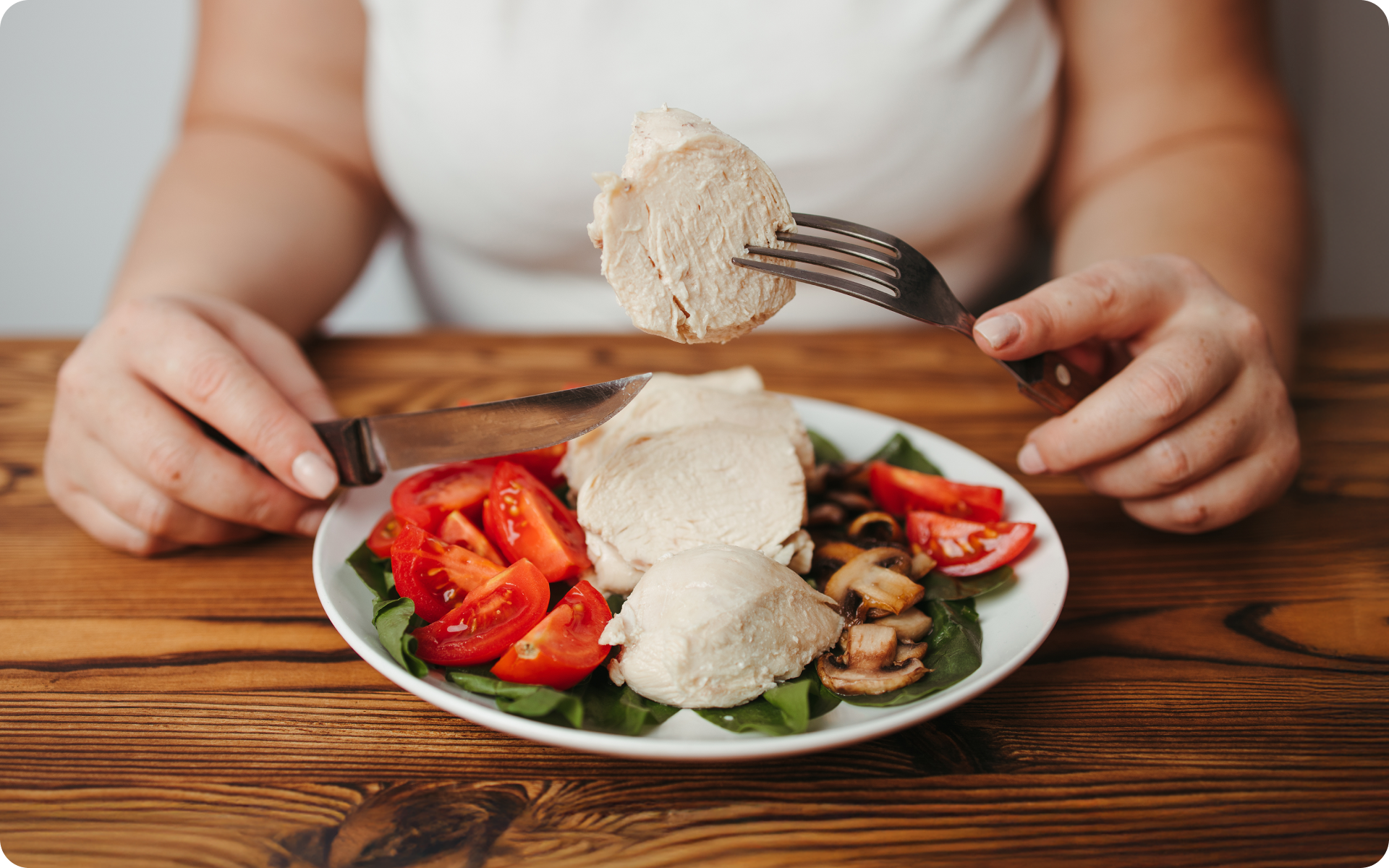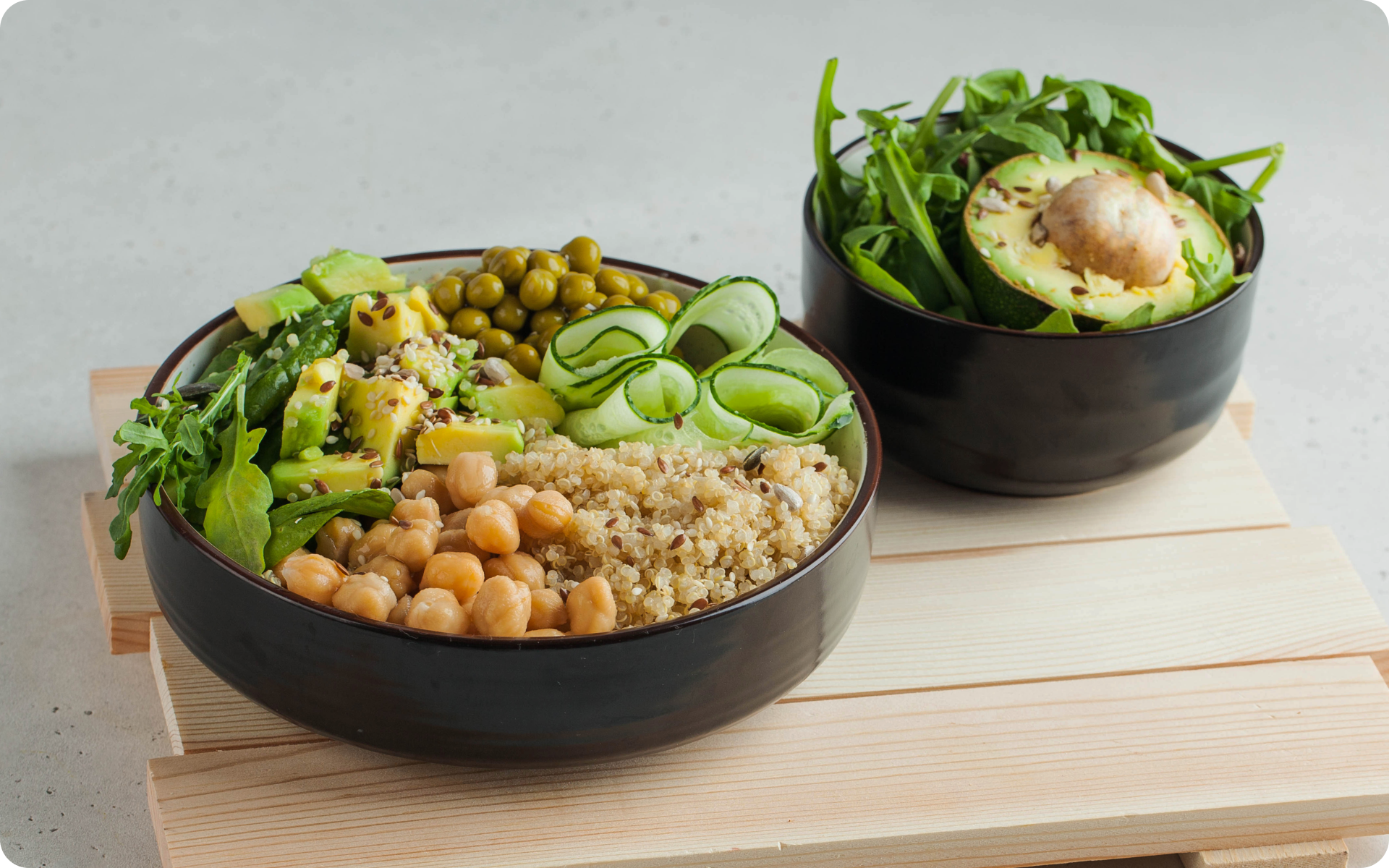A diet that requires you to eat a lot of fruit sounds like the ultimate weight loss solution. It has to be! Fruits are some of the healthiest foods on the planet. But will it really make you lose weight? The answer to this question is both yes and no.
The 3-day fruit diet for weight loss is popular among many people, but has both benefits and limitations. This article will explore how this diet works, its potential pros, cons, and what to expect.
What Is the 3-Day Fruit Diet?
The 3-day fruit diet is a trendy weight loss regimen that’s gained popularity in recent years. It has many variations, but the gist of it is this: for three days, you eat only fruit with no added sugar or sweetener.
The goal is to make a change from all the sweets you’ve been indulging in over the holidays, while also getting some nutrients into your system. And as fruits have a high water content, they help keep you hydrated and satiated during the three days.
The rules of the diet are as follows:
- Each day, drink at least 12 glasses of water.
- Non-water beverages, such as coffee and tea, should be avoided.
- Fresh fruits, in any form, are encouraged (as opposed to frozen, dried, or canned fruits).
- Eat a vegetable salad for supper
- Avoid exercising
- Protein drinks should be used in addition to fruits.
Many people who try this diet have reported feeling surprisingly energized after just one day on it, sometimes even more so than if they had tried to go about their normal eating habits.
Now, let’s take a look at what you can expect when you try this diet out yourself.
Will I Lose Weight If I Eat Only Fruits for 3 Days?
You may lose some water weight if you eat only fruits for 3 days, particularly if you’re consuming fewer calories than your body needs.
Here’s why; when your body doesn’t get enough calories from food, it turns to stored energy sources such as glycogen and fat. As glycogen is broken down, it releases the water it was holding onto, which results in water weight loss.
Fruits are naturally low in calories and high in fiber and water content, which can help you feel full and satisfied while eating less.
Most fruits are rich in vitamins, minerals, and antioxidants that can help with weight loss. For example, citrus fruits such as lemons, grapefruits, and oranges contain high levels of vitamin C, which may help with weight loss if you get enough of it (18).
Furthermore, fruits have a low glycemic index (GI), which means they do not cause a spike in blood sugar levels. This can be beneficial for weight loss as high GI foods tend not to be as filling (20).
However, it’s important to note that eating only fruits for 3 days is not a sustainable or healthy way to lose weight in the long term. While you may see some initial weight loss, it’s likely due to water weight and not fat loss.
In addition, consuming only fruits for 3 days means you’ll miss out on other essential nutrients such as protein, healthy fats, and carbohydrates. This can lead to nutrient deficiencies and negatively impact your overall health.
Moreover, a diet consisting of just fruits may become monotonous and unsustainable in the long term, leading to binge eating or the diet being abandoned altogether.
If you tend to let yourself off the hook, raise the white flag when things get tougher than you expected, send yourself on an unconscious binge-eating trip – BetterMe app is here to help you leave all of these sabotaging habits in the past!
How Much Weight Can You Lose on the 3-Day Fruit Diet?
You may lose anything from 1-4 pounds (0.5-1.8 kg) on the 3-day fruit diet, which will mainly be water weight. This is because when you restrict your diet to only fruits, your body sheds excess water as it burns through stored glycogen.
3 days isn’t long enough to see significant fat loss, so any weight loss on this diet is likely to be temporary. As soon as you resume your regular eating habits, you may gain back the weight you lost.
In addition, the amount of weight you lose on this diet can vary depending on your starting weight, body composition, and level of physical activity. A person with a higher body fat percentage may see more significant results than someone with a lower body fat percentage.
For long-term and sustainable weight loss, exercising and incorporating fruits into a calorie-restricted and balanced diet is recommended (19). This will ensure your body receives all the necessary nutrients for proper functioning while still promoting weight loss.
What Are the Benefits of the 3-Day Fruit Diet for Weight Loss?
Quick Results
Are you looking for quick weight loss results? The 3-day fruit diet is one of the quickest and easiest ways to lose weight and you’ll probably be able to see some sort of results after three days (7).
Water weight is one of the first things to go when you’re dieting and eating far fewer calories than usual, so there’s some weight loss attributed to this diet. It just may not be sustainable fat loss.
Energy Boost
One of the most common things people have reported about this diet is that they feel more energetic than usual during the three days. They report feeling as if their normal diets leave them tired and sluggish, but after following this 3-day fruit diet, they feel more awake and capable of taking on the day. This is subjective, though, and won’t be the case for everyone. Eating too few calories can easily have the opposite effect on your energy levels.
Nutrient and Antioxidant Boost
The fruits you’ll be eating on this diet are also packed with high levels of vitamins and antioxidants that will help keep your body healthy, balanced, and functioning at its best (7).
Fiber Boost
Fruits are also great sources of fiber, which helps to maintain good digestion, control blood sugar levels, and keeps you feeling full for longer (7).
No Calorie Counting Necessary
This diet is all about eating whatever type of fruit your heart desires with no restrictions or limits. This can be a great way to ease yourself into a healthier diet if you’re not used to counting calories.
Cons of Following the 3-Day Fruit Diet for Weight Loss
Unsustainable
The biggest con of this diet is that it isn’t something you can stick to in the long term. We all know how it goes, there’s no way someone can live off fruit for the rest of their life. It’s not balanced, doesn’t provide all the nutrients you need to stay healthy, and becomes boring due to its highly restrictive nature.
Some experts have suggested that certain fruits should be limited on this diet as they have a higher fructose content, while juice diets are often shunned due to the high sugar and low fiber content.
Find out more about fruit juice diets and their effect on health in our blog – Best Fruits To Juice.
Insufficient Protein
Proteins are important for a healthy diet and they will also help keep you feeling fuller for longer (14). While fruits do have some protein in them, it’s not enough to sustain your body throughout the day. This may cause you to crash later on and feel even more tired than usual. In addition, if you don’t get enough protein in your diet, you may lose muscle mass.
Unpleasant Side Effects
There are some unpleasant side effects with a diet like this. Fruits, even the ones you’re allowed to eat on this specific diet, could cause some digestive symptoms and bloating for some people if they’re eaten in excess.
Potentially Harmful
While fruits are good for you, too much of anything can be bad for you. Eating mostly fruit and not a balance of food groups can cause problems such as an inadequacy of certain vitamins and minerals, protein, healthy fats, and other nutrients that your body needs (16).
Lack of Variety
Another drawback to this diet is it doesn’t give you too many options if you want to mix things up. Sure, fruits are pretty versatile, but there are only so many fruits you can eat before you get sick of them.
Long-Term Results
As previously mentioned, the main problem with this diet is that it isn’t something you can stick to in the long term, and most people who try it will (and should) abandon it after three days.
While quick weight loss is often touted as a benefit by those who try this diet, it’s actually a negative thing as once you go back to your normal eating habits, the weight will come right back.
Read more: 7-Day Weight Loss Low-Carb Diet: Choose High-Protein, High-Fiber, or Ultra-Low-Carb
Health Benefits of Eating Fruits
As part of a balanced diet, fruits offer the following health benefits:
Maintain Blood Pressure
Fruits such as apples and grapes contain quercetin, a type of flavonoid that may reduce the risk of stroke and coronary heart disease (CHD).
Some fruits may also increase your body’s production of nitric oxide, a compound that relaxes the walls of arteries, which increases blood flow. These actions help keep your blood pressure in check (7).
Helps with Weight Loss
In addition to being low in calories, fruits are high in fiber and water, which add bulk without adding calories. This helps fill you up, so you eat less at subsequent meals. Apples, pears, peaches, and plums contain lots of soluble fiber in their skin, along with vitamins A and C to promote good health when eaten frequently as part of a balanced diet (8).
Prevent Age-Related Macular Degeneration
The antioxidants lutein and zeaxanthin have been found to reduce the risk of age-related macular degeneration. This is an irreversible eye disorder that affects sharp, central vision in the elderly (11).
Foods that are rich in these two carotenoids include yellow corn, green leafy vegetables, and kiwis. A study found that people who eat five or more servings of fruits and vegetables a day have a lower risk for this condition than those who don’t eat enough produce (5).
Regulate Bowel Movements
Certain fruits contain a soluble fiber called pectin, a water-soluble plant carbohydrate that is found naturally in apples, citrus fruit, and other plants, and have been shown to help regulate bowel movements. Pectin may also help lower blood cholesterol levels (1).
Help Prevent Cancer
Fruits and vegetables contain a wide array of antioxidants that protect your cells from damage by free radicals. These are unstable molecules that can cause cell mutations and eventually lead to cancer and other diseases. Studies have shown that people who eat a lot of fruits and vegetables have a reduced risk of many cancers (8).
In particular, oranges are rich in the antioxidant beta-cryptoxanthin, which may protect against lung cancer. And pomegranates contain ellagic acid, an antioxidant compound that may inhibit the growth of ovarian cancer cells (8).
Prevent Kidney Stones
Citrus fruits such as lemons and grapefruit contain citrate and have been shown to prevent calcium oxalate kidney stones by binding urinary calcium and calcium oxalate crystals (12).
Prevent Alzheimer’s Disease
One meta-analysis reported that people who ate diets rich in fruit and vegetables had a reduced risk of developing Alzheimer’s disease (10). Blueberries are particularly high in antioxidants called anthocyanins, which have been linked to improved memory.
Slow Aging
Fruits contain other beneficial compounds known as polyphenols — potent antioxidants that protect your skin from sun damage and may reduce your risk of skin cancer. These substances can be absorbed into your body if you eat fruits such as apples, strawberries, grapefruit, and citrus (8).
BetterMe app is a foolproof way to go from zero to a weight loss hero in a safe and sustainable way! What are you waiting for? Start transforming your body now!
Get Your Recommended Daily Allowance of Fruits
Women should eat 1 ½ to 2 cups of fruit a day, while men require approximately 2 cups, according to the U.S. Department of Agriculture’s Dietary Guidelines for Americans (2). However, just because you’re not eating the suggested daily servings doesn’t mean you can’t reap any benefits from fruit. It’s not easy for everyone to eat enough produce every day to meet their nutrient needs, so even if you have one or two pieces a day, it’s better than nothing.
It may seem difficult to fit in the recommended servings on hectic days when time is at a premium. However, by cutting up fruits and eating them with other foods, you can boost their nutrient value and make them easier to digest.
In addition, by boosting the fruit content of your breakfast cereal with sliced bananas or berries or adding a few pieces to your green salads, you’ll open up a whole new world of flavors and benefits.
Read more: 24 Weight Loss Smoothies, 2 Diet Plans, and 5 Belly Fat Smoothie Secrets
FAQs
Can I eat only fruits for 7 days?
It’s not recommended to eat only fruits for 7 days or any extended period. A diet that consists solely of fruits can lead to nutrient deficiencies and negatively impact your health.
For example, fruits don’t provide enough protein, healthy fats, and certain essential vitamins and minerals for your body to function properly.
Furthermore, following a restrictive and monotonous diet for 7 days may lead to binge eating, which can cause you to consume more calories than you would on a balanced diet.
We discuss how to better incorporate fruits, vegetables, and other plant-based foods in our post – Vegetarian Intermittent Fasting.
Is it good to eat 3 fruits a day?
It’s good to eat 3 fruits a day for several reasons. Fruits are a rich source of essential vitamins, minerals, and antioxidants that are beneficial for overall health. Eating 3 servings of fruits a day can help you meet your daily recommended intake of these nutrients.
In addition, consuming fruits as part of a balanced diet can help with weight loss as they are low in calories and high in fiber, which keeps you full and satisfied while eating less (9). Eating a variety of fruits can ensure you get a diverse range of nutrients for optimal health.
Can you overeat fruit?
It’s possible to overeat fruit. The latest dietary guidelines recommend that most adults consume 1-2 cups of fruit per day, depending on their calorie needs.
Eating a lot more than the recommended amount may lead to consuming excess calories and can contribute to weight gain. In addition, some fruits are higher in sugar content than others, which may negatively impact your blood sugar levels if you have diabetes or impaired glucose tolerance (17).
Consuming too much fiber from fruits may also cause digestive issues such as bloating, gas, and flatulence if you aren’t used to it (17). Try increasing your fiber intake gradually to avoid discomfort.
What 3 fruits contain the most sugar?
The top 3 fruits with the highest sugar content are dates, raisins, and prunes. One cup of dates contains approximately 93 grams of sugar (4), while one cup of raisins contains approximately 104 grams of sugar (15). Prunes also have a high sugar content with one cup containing approximately 66 grams of sugar (13).
Bananas and grapes are also high in sugar, with one medium-sized banana containing approximately 18 grams of sugar (3) and one cup of grapes containing approximately 23 grams of sugar (6).
It should be noted that natural sugars that are found in fruits are not necessarily unhealthy. They come with essential vitamins, minerals, water, and fiber that can help balance out the impact on blood sugar levels. You should focus on limiting added sugars. However, it’s still important to consume fruits in moderation and opting for whole fruits more often than dried ones can help you avoid excessive sugar intake.
Explore more healthy options for weight loss in our post – 30-Day Fasting Challenge.
The Bottom Line
The 3-day fruit diet is restrictive and offers temporary results at best. That being said, there’s a reason doctors and nutritionists recommend we eat a diet that is rich in fruits and vegetables. These foods are an important source of vitamins, minerals, fiber, and cancer-fighting substances. By including more fresh produce in your healthy balanced diet, you can help maintain optimum health, in addition to losing weight.
DISCLAIMER:
This article is intended for general informational purposes only and does not serve to address individual circumstances. It is not a substitute for professional advice or help and should not be relied on for making any kind of decision-making. Any action taken as a direct or indirect result of the information in this article is entirely at your own risk and is your sole responsibility.
BetterMe, its content staff, and its medical advisors accept no responsibility for inaccuracies, errors, misstatements, inconsistencies, or omissions and specifically disclaim any liability, loss or risk, personal, professional or otherwise, which may be incurred as a consequence, directly or indirectly, of the use and/or application of any content.
You should always seek the advice of your physician or other qualified health provider with any questions you may have regarding a medical condition or your specific situation. Never disregard professional medical advice or delay seeking it because of BetterMe content. If you suspect or think you may have a medical emergency, call your doctor.
SOURCES:
- [Health-promoting properties of pectin] (2014, pubmed.ncbi.nlm.nih.gov)
- Americans Still Can Meet Fruit and Vegetable Dietary Guidelines for $2.10-$2.60 per Day (2019, ers.usda.gov)
- Bananas, ripe and slightly ripe, raw (2020, fdc.nal.usda.gov)
- Dates, deglet noor (2019, fdc.nal.usda.gov)
- Top Causes of Eye Problems (2022, webmd.com)
- Grapes, raw (Survey (FNDDS), 2344732) (2022, fdc.nal.usda.gov)
- Health benefit of vegetable/fruit juice-based diet: Role of microbiome (2017, ncbi.nlm.nih.gov)
- Health Benefits of Fruits and Vegetables (2012, ncbi.nlm.nih.gov)
- Impact of Whole, Fresh Fruit Consumption on Energy Intake and Adiposity: A Systematic Review (2019, frontiersin.org)
- Increased Consumption of Fruit and Vegetables Is Related to a Reduced Risk of Cognitive Impairment and Dementia: Meta-Analysis (2017, ncbi.nlm.nih.gov)
- Lutein and Zeaxanthin Status and Risk of Age-Related Macular Degeneration (2003, arvojournals.org)
- Medical and Dietary Therapy for Kidney Stone Prevention (2014, ncbi.nlm.nih.gov)
- Plums, dried (prunes), uncooked (2019, fdc.nal.usda.gov)
- Protein, weight management, and satiety (2008, sciencedirect.com)
- Raisins (2022, fdc.nal.usda.gov)
- The Fruitarian Diet: Is It Good or Bad For You? (2021, clevelandclinic.org)
- Therapeutic Benefits and Dietary Restrictions of Fiber Intake: A State of the Art Review (2016, ncbi.nlm.nih.gov)
- Vitamin C: A Review on its Role in the Management of Metabolic Syndrome (2020, ncbi.nlm.nih.gov)
- Weight-Loss and Maintenance Strategies – Weight Management (2004, ncbi.nlm.nih.gov)
- What is the glycaemic index (GI)? (2022, nhs.uk)











